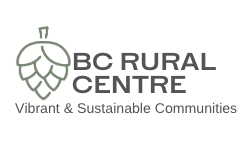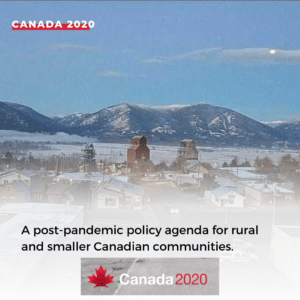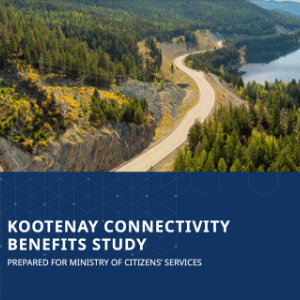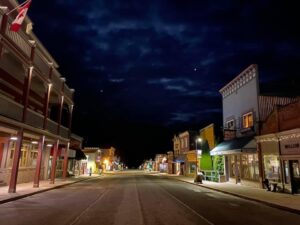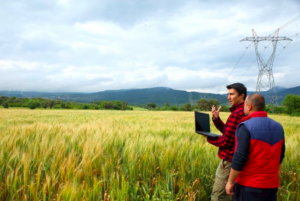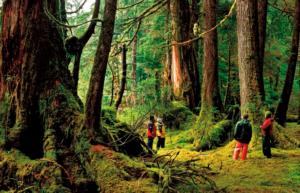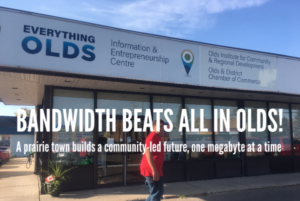Broadband
A Post-Pandemic Policy Agenda for Rural and Smaller Canadian Communities
Many of us know someone who, at the height of the pandemic, picked up and moved from an urban centre to a smaller, more rural Canadian community. Though small and rural communities face unique challenges across this country, we know one thing: inclusive and sustainable growth principles are becoming foundational to economic decision-making across the…
Read MoreStudy finds Rural Connectivity Benefits People, Economy
The Kootenay Connectivity Benefits Study, released by BC Stats, finds high-speed internet connectivity expansions in rural, remote and Indigenous communities positively impacts both local and provincial economies in the short and long term. Read the Full Report Here: Kootenay Connectivity Report 2022 BC Stats conducted a study of the Kootenay Economic Region to examine the…
Read MoreA Digital Divide Persists Between Rural and Urban Canadians
Are you getting the internet speeds you’re paying for? A digital divide persists between rural and urban Canadians. CIRA is mapping this divide through their Internet Performance Test (IPT) platform so they can help communities understand how best to tackle internet access issues in their area—but they need your help! Run an IPT today! It’s…
Read MoreKaslo InfoNet’s Tim Ryan
Kaslo, BC, a small, isolated West Kootenay village surrounded by rugged mountains and a 120 km-long lake, is home to one of the world’s smallest community-owned and operated, fibre-optic-enabled Internet Service Providers — Kaslo InfoNet Society, or KiN. KiN’s Tim Ryan speaks to the challenges faced by KiN and how they overcame them in this…
Read MoreConnecting Kaslo
High-speed internet is a luxury — or non-existent — in many rural, remote, and First Nations communities across BC. In this video produced by Connected Communities BC, the experience of the remote West Kootenay village of Kaslo, home to less than 1,000 inhabitants, and possibly the world’s smallest community-controlled, fibre-enabled internet network, the Kaslo InfoNet…
Read MoreRural Connectivity an Issue for Every Canadian
Cybera is an Alberta not-for-profit, technical agency that helps the province advance its IT frontiers. It operates through a strategic investment by its members and the Ministry of Alberta Economic Development and Trade. The following report by Meagan Hampel will be of interest for rural innovation advocates across the country. As part of our core mandate, Cybera…
Read MoreInternet Expands in Rural BC & First Nations
The B.C. government has shared details on funding to bring high-speed internet connections to more rural and Indigenous communities. The province announced more than $11 million in funding through the Connecting British Columbia program, which will reach 33 communities. The main areas to receive fibre-optic internet cable will be Haida Gwaii, the areas between Whistler…
Read MoreHaida Gwaii homes to get high-speed fibre optic internet
A $4.9-million project will connect hundreds more Haida Gwaii homes to affordable high-speed internet, reports Andrew Hudson of the Haida Gwai Observer. Thanks to funding announced Tuesday by the Canadian and B.C. governments as well as Gwaii Trust, local internet provider Gwaii Communications will soon start extending the islands’ fibre-optic internet network and offering free…
Read MoreOlds, Alberta Goes High Tech
Olds, Alberta agrees with the following statement: “It’s difficult to argue against the observation that the 21st economy is increasingly dominated by new and emerging technologies. Cities and towns that fail to acknowledge and act upon this are destined to become — or remain — economic backwaters.” Olds (pop. 9,200) has become a leading example…
Read MoreOntario’s Rural Broadband Challenge
Ontario’s rural broadband challenge is highlighted in this article by Dave Reevely, originally published in the Ottawa Citizen. Running subsidized Internet lines to rural Ontario has an important thing in common with the provincial government’s plan to pay for new natural-gas pipes to the same places: There’s private money to be made. We can’t…
Read More